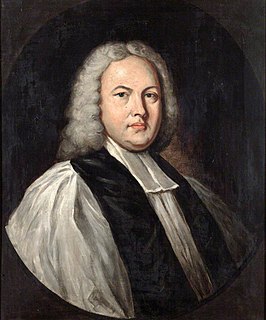A Quote by William Godwin
In the summer of 1791, I gave up my concern in the 'New Annual Register,' the historical part of which I had written for seven years, and abdicated, I hope forever, the task of performing a literary labour, the nature of which should be dictated by anything but the promptings of my own mind.
Related Quotes
Of all literary exercitations, whether designed for the use or entertainment of the world, there are none of so much importance, or so immediately our concern, as those which let us into the knowledge of our own nature. Others may exercise the understanding or amuse the imagination; but these only can improve the heart and form the human mind to wisdom.
A free mind is one which is untroubled and unfettered by anything, which has not bound its best part to any particular manner of being or worship and which does not seek its own interest in anything but is always immersed in God's most precious will. . . . There is no work which men and women can perform, however small, which does not draw from this its power and strength.
While the machinery of law enforcement and indeed the nature of crime itself have changed dramatically since the Fourth Amendment became part of the Nation's fundamental law in 1791, what the Framers understood then remains true today - that the task of combating crime and convicting the guilty will in every era seem of such critical and pressing concern that we may be lured by the temptations of expediency into forsaking our commitment to protecting individual liberty and privacy.
Let man only approach his own self with a deep respect, even reverence for all that the creative soul, the God-mystery within us, puts forth. Then we shall all be sound and free. Lewdness is hateful because it impairs our integrity and our proud being. The creative, spontaneous soul sends forth its promptings of desire and aspiration in us. These promptings are our true fate, which is our business to fulfill. A fate dictated from outside, from theory or from circumstance, is a false fate.
The Bible was written two thousand years ago. The world is a different place now. Stories that had meaning then are meaningless now. Beliefs that might have been valid then are invalid now. Those books should be looked at in the same way we look at anything of that age with interest with an acknowledgement of the historical importance but they should not be thought of as anything that has any value.
It may indeed prove to be far the most difficult and not the least important task for human reason rationally to comprehend its own limitations. It is essential for the growth of reason that as individuals we should bow to forces and obey principles which we cannot hope fully to understand, yet on which the advance and even the preservation of civilization depend.
The boycott of parliamentary institutions on the part of anarchists and semianarchists is dictated by a desire not to submit their weakness to a test on the part of the masses, thus preserving their right to an inactive hauteur which makes no difference to anybody. A revolutionary party can turn its back to a parliament only if it has set itself the immediate task of overthrowing the existing regime.







































